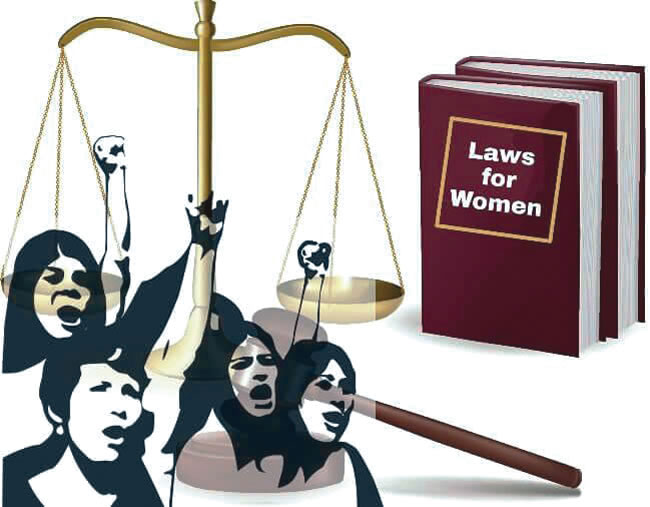Often, people express the sentiment that due to the patriarchal nature of the Nigerian society, the laws in Nigeria do not cater for their well being of women and consequently, they are left to the whims and caprices of the men.
Some even argue that where there are provisions, the laws favour the men at the detriment of women, citing the penal code common in the northern part of Nigeria as an example of laws with double standards.
While the effectiveness of the laws protecting women can be argued, it cannot be said that there are no laws in Nigeria protecting women on diverse issues. There are indeed various laws made specifically in the interest of women which has been domesticated across states.
The National Policy on Women of 2000 launched specific guidelines for promoting gender equality in all sectors of the economy and the policy is continually being revised into a National Gender Policy in order to reflect the new shift towards gender and development.
The National Centre for Women Development, in collaboration with the Federal Ministry of Women Affairs, commenced a project in 2003 which was completed in 2005 and it aimed at compiling discriminatory and customary laws. The outcome document highlights the effects of the contradictions between the three legal systems − statutory, religious and customary − on the status of women in various areas, such as: property rights, including land tenure; access to credit; education; participation in politics; marriage; succession; and maintenance and custody of children, among others.
The supreme law in Nigeria which is the constitution has many sections dealing with issuws3 that affect women. The 1999 Constitution in Article 15(2) and Article 42(1) (a) and (b) (2) and (3) prohibit discrimination on the basis of sex and ensure that men and women have equal access to the courts in matters of contracts, torts and all civil matters.
In Articles 17(1)and (2) (a), there was recognition of women’s equal rights; equality of rights, obligations and opportunities before the law.
Article 43 recognises the right to acquire property and guarantees every citizen the right to acquire and own immovable property anywhere in the country while Article 16 (2)(d) recognises the right to land, housing and property
Article 11 states that women shall have equal rights as men with respect to employment opportunities, choice of professions, promotion and remuneration
Section 29 deals with modes of renunciation of Nigerian citizenship. Subsection 29[4][b] recognizes a married woman, but not a married man, who avails herself of this Subsection as being of full age. This implies that a girl married at age 12 shall be treated as an adult.
Also, the Violence Against Persons Prohibition (VAPP) law makes express provisions on financial independence, punishment for men abandoning their spouses, all forms of abuse, child abuse, female genital mutilation and all forms of sexual intimidation and harrasment of women among others.
READ ALSO FROM NIGERIAN TRIBUNE






